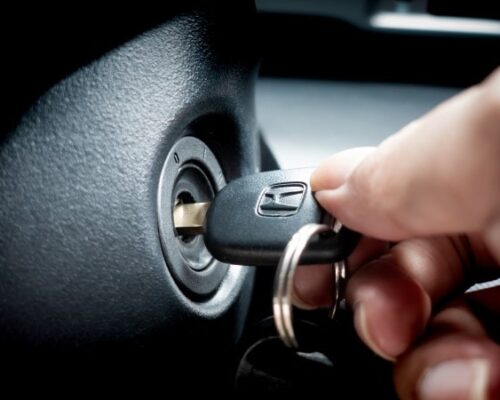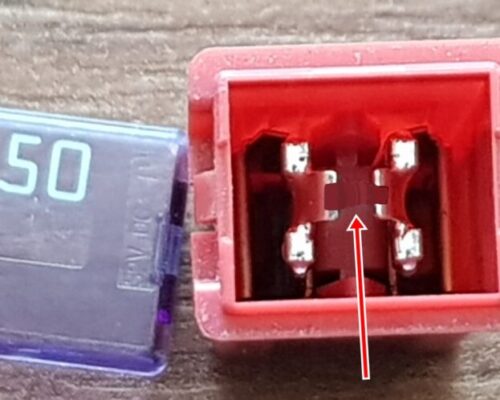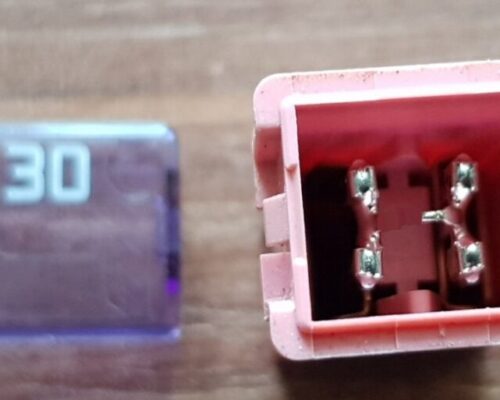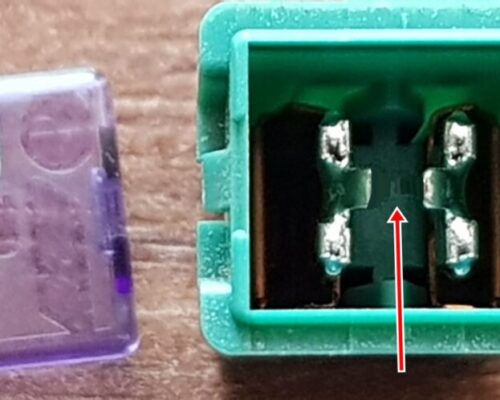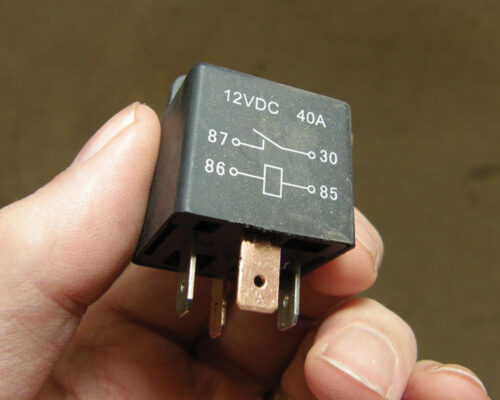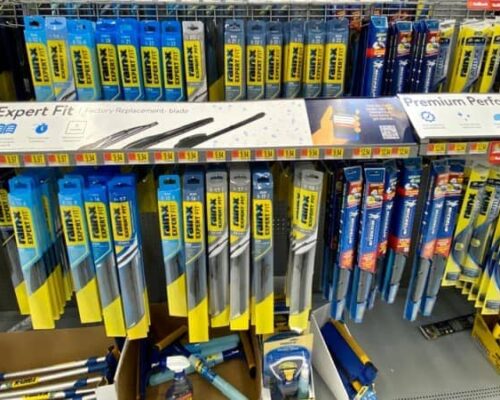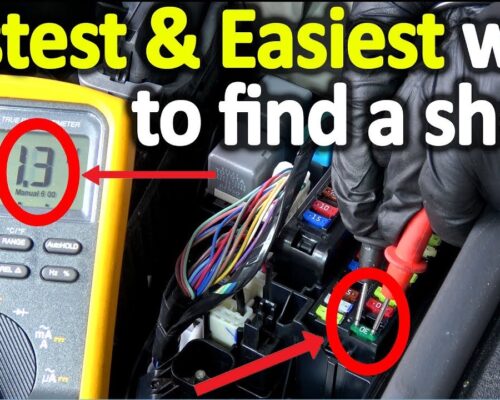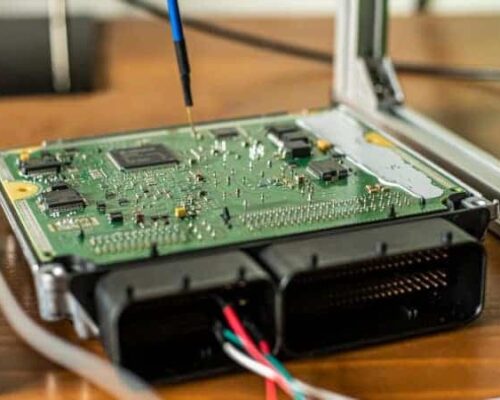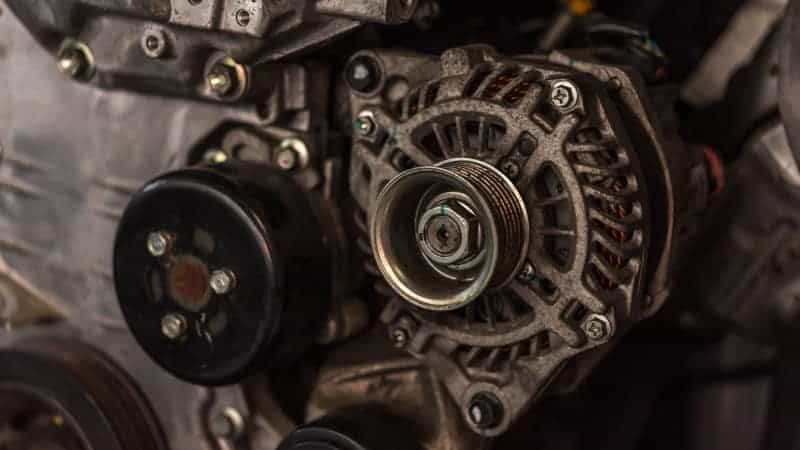
Alternator Belt Squeal After Replacement [Causes And Fixes]
If you are experiencing alternator belt squeal after replacement, there are a few potential causes and fixes. First, check to see if the tensioner pulley is properly aligned. If it is not, this can cause the belt to slip and squeal.
Additionally, check the condition of the belt itself. If it is cracked or frayed, it will need to be replaced. Finally, make sure that the alternator itself is free from debris and properly secured.
If all of these things are in order, then the squealing should stop.
If you’ve ever heard a loud squeal coming from your engine bay, it’s most likely your alternator belt. Alternator belts are made of rubber and over time, they can start to deteriorate and break down. This can cause them to slip or become misaligned, which will cause that annoying squeal.
Luckily, replacing an alternator belt is a relatively easy fix. But if you’re hearing the squeal after you’ve already replaced the belt, there could be a few different causes. Here are some of the most common:
1. The pulleys are misaligned – This is one of the most common causes of alternator belt squeal. If the pulleys that the belt is riding on are even slightly out of alignment, it can cause the belt to slip and squeal. You’ll need to have a professional check and adjust the pulleys if this is the case.
2. The tensioner is loose – The tensioner is what keeps the alternator belt tight around the pulleys. If it’s loose, it can cause slack in the belt which will also lead to slipping and squealing. Again, this is something that needs to be checked and adjusted by a professional mechanic.
3 .The wrong size belt was installed – Make sure that when you get your new alternator belt, you get one that’s exactly the same size as your old one . Even if it’s just a few millimeters off , it can make all the difference in how well it fits around the pulleys .
If you’re not sure what size you need , just take your oldbelt with you when you go to buy a new one .
4 . There’s debris caught in between – Over time , small pieces of dirt or debris can get caught between the teethof an idler pully or other moving part .
When this happens ,it preventsthepulley from spinning smoothlywhich makesa lotof noise !
How To STOP ALTERNATOR BELT Squeaking & Chirping Noise FOREVER!!!
What Causes New Alternator Belt Squeal?
One of the most common reasons for a new alternator belt to squeal is that it was not installed correctly. If the belt is loose, it will squeal when the engine is running. Another possibility is that the tensioner pulley or idler pulley are defective and need to be replaced.
Finally, the squealing could be caused by a misaligned engine pulley.
How Do I Stop My Alternator Belt from Squealing?
If your alternator belt is squealing, it’s likely due to one of three issues: the belt is loose, the tensioner is failing, or the pulleys are misaligned. Let’s take a closer look at each of these issues and how to fix them.
First, check to see if the belt is loose.
If it is, simply tighten it up using the adjustment bolts. If that doesn’t solve the problem, then you’ll need to check the tensioner. The tensioner keeps the correct amount of tension on the belt so that it doesn’t slip.
If it’s not working properly, it can cause the belt to squeal. To test it, remove the belt and try moving the tensioner pulley by hand. If it’s stiff or hard to move, then it needs to be replaced.
Finally, if neither of those solutions fixes the problem, then it’s likely that your pulleys are misaligned. This can happen if they become bent or damaged somehow. To fix this issue, you’ll need to replace the pulleys.
Hopefully one of these solutions will help you stop your alternator belt from squealing!
![Alternator Belt Squeal After Replacement [Causes And Fixes]](https://i.ytimg.com/vi/_8RE8p_m8bA/maxresdefault.jpg)
Credit: rxmechanic.com
Why Does My Serpentine Belt Squeal After Replacement
If you’ve replaced your serpentine belt and it’s still squealing, there are a few possible causes. First, make sure the belt is properly aligned on the pulleys. If the belt is misaligned, it can cause premature wear and noise.
Second, check the tensioner pulley to make sure it’s not loose or damaged. A loose or damaged tensioner pulley can also cause premature wear and noise. Finally, check the condition of the idler pulleys.
If they’re excessively worn or damaged, they may need to be replaced.
Alternator Belt Squeals under Load
If your alternator belt is squealing under load, there are a few possible causes. The most common cause is simply that the belt is too tight. When the engine is running and the alternator is spinning, the belt should have some give to it.
If the belt is too tight, it will squeal as it tries to spin faster than the pulleys will allow.
Another potential cause of an alternator belt squeal is a misaligned pulley. If one of the pulleys that the belt runs over is not lined up correctly with the others, it can cause the belt to run unevenly and produce a squealing noise.
This problem can usually be fixed by realigning the pulley in question.
Finally, an alternator belt may squeal if there is something wrong with the Alternator itself. If you suspect this to be the case, take your vehicle to a qualified mechanic or dealership service department for diagnosis and repair.
Alternator Belt Squealing
If you’ve ever heard a squealing noise coming from your car’s engine, it’s likely that your alternator belt is the culprit. The alternator belt is responsible for powering the alternator, which in turn powers the electrical system in your car. If the belt is loose or damaged, it can cause a squealing noise as it spins.
In most cases, a squealing alternator belt is nothing to worry about and can be easily fixed. However, if the problem is ignored, it could lead to more serious issues such as an overheated engine or a dead battery.
If you notice that your alternator belt is squealing, the first thing you should do is check to see if the belt is loose.
If it is, simply tighten it up using a wrench or socket set. You may also need to replace thebelt if it’s worn out or damaged.
Once you’ve tightened or replaced the belt, start up your car and listen for any further squealing noises.
If all goes well, the noise should be gone and you can get back on the road without any worries. However, if you still hear squealing after tightening or replacing the belt, there may be another issue at hand and you’ll need to consult with a mechanic for further diagnosis.
High Pitched Noise After Replacing Alternator
If you’ve recently replaced your alternator and you’re hearing a high pitched noise, there’s a chance that the problem lies with your serpentine belt. Over time, the belt can become stretched and worn, causing it to slip when it’s under load. When this happens, it can cause a squealing noise as the belt tries to grip the pulleys.
If you think this may be the case, try tightening the tensioner to see if that stops the noise. If not, you may need to replace the belt altogether.
How to Stop New Serpentine Belt from Squealing
If your new serpentine belt is squealing, there are a few things you can do to try to stop the noise. First, check to see if the belt is properly aligned on the pulleys. If it’s not, adjust it so that it is.
You may also need to tighten the tensioner to get rid of the squeal. If these two things don’t work, you may need to replace thebelt with a new one.
Belt Squeal Goes Away When Accelerating
Belt squeal can be a nuisance when driving, but it doesn’t have to be something you live with! If your belt is making noise when you accelerate, there are a few things you can do to make the squeal go away.
First, check to see if the belt is loose.
A loose belt will often start to squeal when acceleration is applied. If the belt is loose, simply tighten it according to your car’s specifications.
If the belt is tight and still squealing, there may be an issue with the pulleys the belt runs over.
These pulleys can become worn or damaged over time, causing them to create friction and noise when the belt runs over them. To fix this problem, you’ll need to replace the pulleys.
Finally, if neither of these solutions works, it’s possible that the squeak is coming from something else entirely – such as a fan blade or alternator bracket.
In this case, it’s best to consult a professional mechanic who can diagnose and fix the problem quickly and easily.
How to Fix a Squeaky Alternator
If your car’s alternator is making a squeaky noise, there are a few things you can do to fix it. First, check the belt that connects the alternator to the engine. If it’s loose, tighten it.
If the belt is worn or damaged, replace it.
Next, check the alternator itself. If the bearings are worn out, they will need to be replaced.
You can usually tell if the bearings are bad if the alternator makes a grinding noise when it’s running. Finally, check all of the connections to make sure they’re tight and free of corrosion.
If you take these steps and your alternator still squeaks, you may need to take it to a mechanic for further diagnosis and repairs.
Alternator Squeal When Accelerating
If your car is making a squealing noise when you accelerate, it could be a sign that your alternator belt is loose. The alternator is responsible for charging the battery and powering the electrical system while the engine is running. If the belt that drives the alternator is loose, it can slip and cause a squealing noise.
In most cases, a squealing noise from the alternator is nothing to worry about and can be fixed by simply tightening the belt. However, if the noise persists or gets louder, it could be a sign of a more serious problem with the alternator itself. If this is the case, it’s best to take your car to a mechanic for further diagnosis and repair.
Conclusion
If your newly replaced alternator belt is squealing, there are a few potential causes. The most common cause is that the tension on the belt is too tight. You can fix this by loosening the tensioner and retightening it to the proper specifications.
Another possibility is that the belt itself is damaged or defective. In this case, you’ll need to replace it with a new one. Finally, if the pulleys that the belt runs over are misaligned or damaged, they will need to be repaired or replaced as well.


